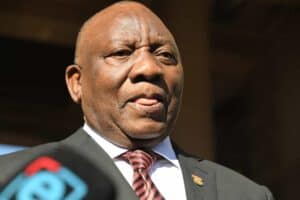The athletes will receive the Johnson and Johnson vaccine, in order to allow them to participate in the Olympic and Para-Olympic games.

South Africa’s elite athletes are set to be vaccinated through the Sisonke Program.
The athletes will get their jabs just in time important international sporting events including the Tokyo Games which kick off in a few weeks’ time.
The South African Medical Research Council (SAMRC) recently received approval by the South African Health Product Regulatory Authority (SAHPRA) to spare a modest number of the remaining COVID-19 Ad26 Johnson & Johnson vaccine doses, that can be used before they expire.
According to SAMRC spokesperson Dumile Mlambo, the vaccination of these athletes is not compulsory. Elite athlete vaccinations are expected to take take place at various vaccination sites throughout the country.
After the end of the Sisonke trial, investigators made an urgent application to SAHPRA requesting them to waiver the eligibility criteria to include persons of high priority to the nation, including the Olympic and Para-Olympic Team to be allowed access to the Ad26 SARS-CoV-2 jabs.
The investigators did this only after the end of Phase 3B open-label component of the health care worker study.
Also Read: Gauteng blows R2 million on virtual events as artists, athletes wait for Covid-19 funds
The plan to vaccinate elite athletes was announced by the Minister of Health, Dr Zweli Mkhize earlier this year, when he launched the national Covid-19 vaccine roll-out.
According to Professor Glenda Gray, President and CEO of the SAMRC and the National Co-Principal Investigator
(Co-PI) of the Sisonke Study, there was not enough time for the athletes to take the Pfizer vaccines which requires two doses spaced apart by at least three weeks.
The Sisonke team has, however, ensured that the numbers balance out.
“By them receiving the Sisonke vaccine, the Pfizer doses allocated to them will go to ordinary citizens of our country and thus will free up additional doses for our country” said Professor Gray, adding that all conditions of registration of the JNJ vaccine will be observed for the vaccinated athletes.
“These include safety monitoring and reporting of the relevant safety outcomes to SAHPRA at specified intervals,”, she said.
Professor Linda Gail Bekker, Co-National Principal Investigator says at the end of the day these individuals
are ambassadors for our country, they have to travel to do their jobs, and they need to be vaccinated.
As part of the initial phase of the National Vaccination Programme, 479 768 healthcare workers were vaccinated at 122 sites nationwide.
Sub-studies are ongoing to evaluate the vaccine further in pregnant and lactating women, in health workers living with HIV, older health workers, and those with other co-morbidities.






